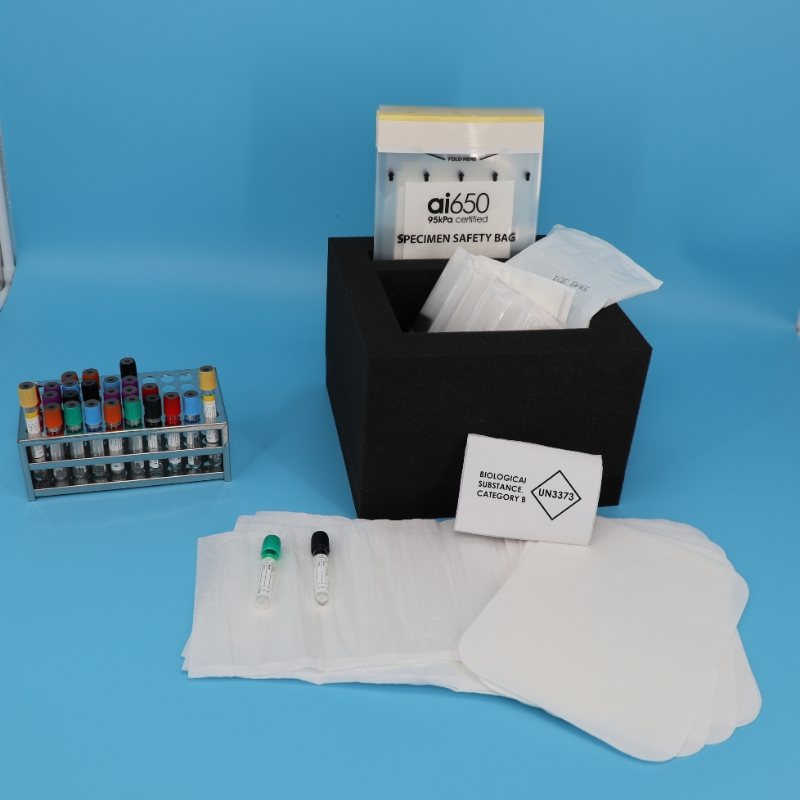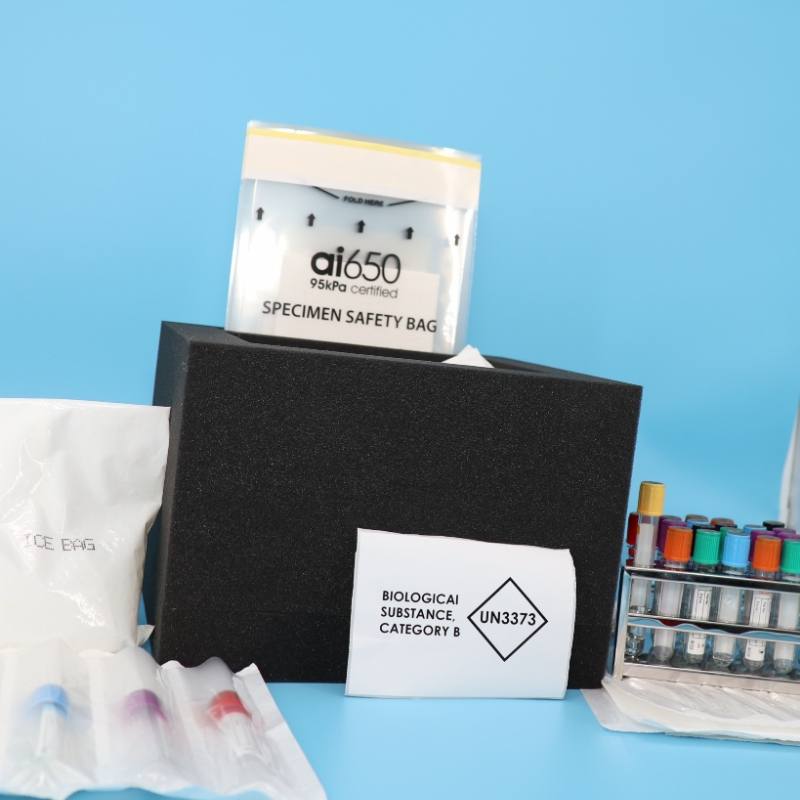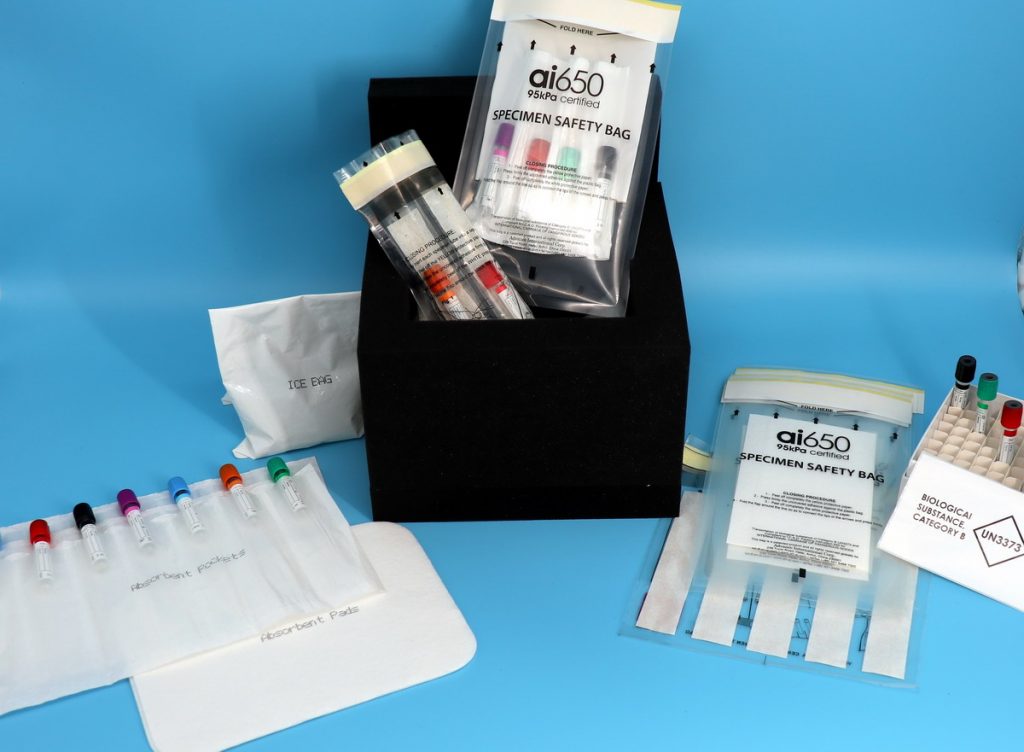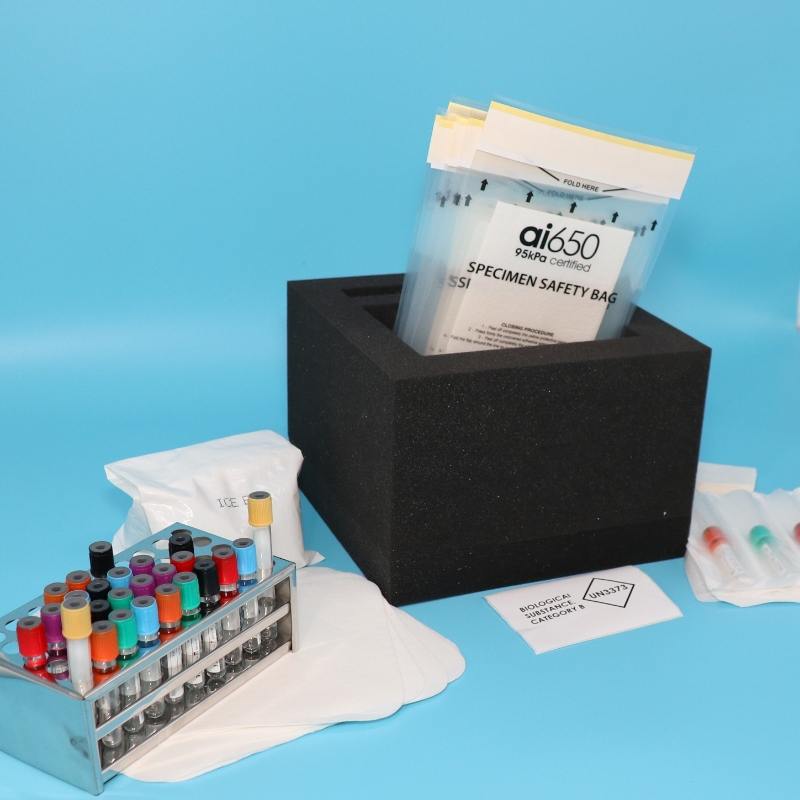Collection and Transport Kits have been meticulously designed to cater to the versatile needs of modern healthcare facilities, research laboratories, and diagnostic centers. These kits are at the forefront of ensuring the integrity and safety of samples from the point of collection to the point of testing or analysis.
The primary components of these kits include containers specifically engineered to store samples under optimal conditions. This may include temperature-controlled vials or tubes that keep the sample at a stable temperature to prevent any degradation or alteration of the sample’s composition. Additionally, the materials used in these containers are chosen for their biocompatibility to ensure that they do not interact with the sample, which is crucial for maintaining the accuracy of test results.
To complement the containers, the kits also include a range of collection devices such as swabs, needles, or blood collection tubes, which are sterile and ready to use. The choice of collection device depends on the type of sample being collected, whether it’s blood, saliva, throat swab, or another biological specimen. Sterility is a non-negotiable aspect to avoid contamination, which can compromise the entire diagnostic process.
Understanding the sensitivity of samples, especially biological ones, these kits are often accompanied by detailed instructions for proper collection technique. This is vital as improper collection can lead to inaccurate results or the need to repeat the procedure, causing inconvenience and delay.
Another important feature of these kits is their portability and ease of use. They are designed to be compact and come with secure seals to prevent leakage or spillage during transport. This is particularly important when samples need to be transported over long distances or under varying environmental conditions. Some advanced kits may also include temperature monitoring devices to track the sample’s condition in real-time during transit.
For the healthcare professional or the laboratory technician, Collection and Transport Kits offer peace of mind. They know that the samples they handle will remain intact and uncontaminated, which is essential for reliable and reproducible test outcomes. In turn, this fosters trust between healthcare providers and patients, as well as between researchers and study participants, knowing that the results they receive are based on samples that have been handled with the utmost care.
In summary, Collection and Transport Kits are an integral part of the healthcare and research ecosystems, serving as a critical link between sample collection and diagnostic testing. Their thoughtful design and functionality ensure that samples arrive at their destination in pristine condition, enabling professionals to make informed decisions based on accurate and trustworthy results.

Sterility and Biocompatibility: Ensuring that all components in direct contact with the sample are sterile and designed to prevent any biological interaction that could alter the sample’s integrity.
Temperature Control: Incorporating materials and design features that maintain samples at a stable temperature, protecting them from thermal degradation during collection, transport, and storage.
Durable Containment: Utilizing robust and secure containers capable of withstanding physical impacts and pressure changes without compromising the safety of the enclosed samples.
Ease of Use: Providing clear instructions and intuitive designs for both healthcare providers and patients to ensure proper collection techniques and minimize the risk of user error.
Portability and Leak Prevention: Developing compact, easily portable kits with secure seals to prevent leakage or spillage during transportation, even under challenging conditions.
Real-Time Monitoring: Integrating temperature and condition monitoring devices that provide real-time data on the sample’s environment, enabling prompt action if deviations occur.

| Product name | Collection and Transport Kits |
| Volume | a box |
| Packing Qty | 100PCS/Rack, 1200PCS/CTN |
| Usage | for Clinical Haematology Test |
| Sterile | Irradiation sterilization |
| Single gross weight: | 0.5 kg |


